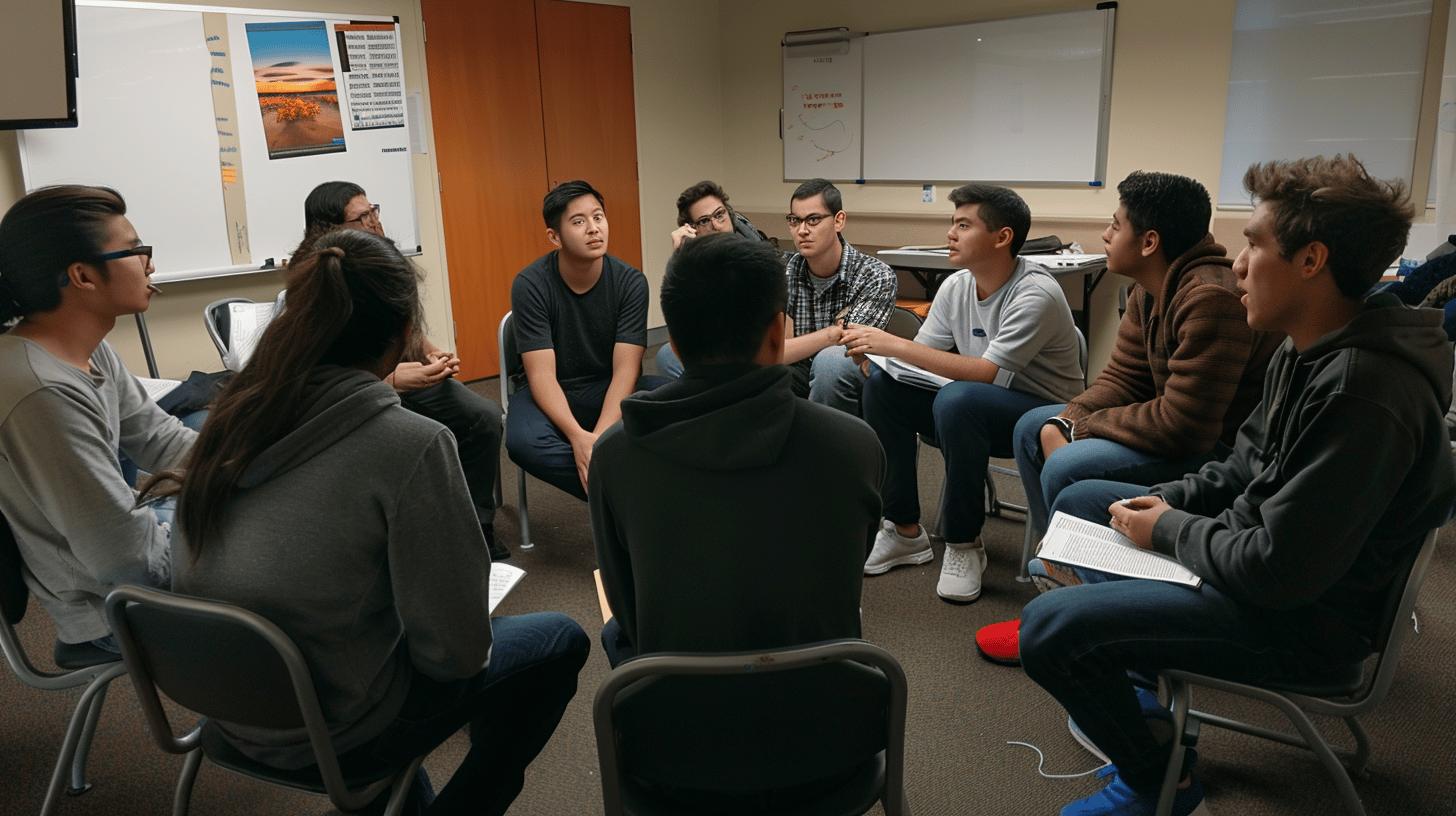Is it possible that the foods visually appealing to children could be the key to healthier eating habits? The field of developmental psychology is teeming with such intriguing questions, especially when it comes to childhood. From cognitive growth to emotional milestones, understanding these aspects is crucial to nurturing well-rounded children. This article will dive into some of the most pivotal developmental psychology questions focused on childhood, offering insights and sparking curiosity in parents and educators alike.
Key Developmental Psychology Questions for Childhood
Understanding childhood development is crucial for parents, educators, and psychologists. Developmental psychology questions help us comprehend how children grow, learn, and adapt at various stages.
Questions about cognitive, social, and emotional development are essential. Cognitive development questions might explore how children acquire language and problem-solving skills. Social development questions often examine how children form relationships and navigate social norms. Emotional development questions can assess how children understand and manage their emotions.
- Cognitive Development: "How do children develop problem-solving skills between ages 3 and 5?"
- Social Development: "What impact does early peer interaction have on a child's social skills?"
- Emotional Development: "How do children learn to regulate their emotions during early childhood?"
- Nutritional Influence: "Could packaging nutritious foods in visually appealing ways encourage children to make healthier food choices?"
- Parental Impact: "How does parenting style affect a child's cognitive and emotional development?"
Research in these areas has practical applications. For instance, understanding cognitive milestones helps in creating effective educational programs. Insights into social development inform strategies to foster better social skills. Emotional development research guides interventions for children struggling with emotional regulation. These questions are vital for improving childhood development outcomes.
Developmental Psychology Questions for Adolescence

Adolescence is a pivotal stage in human development marked by rapid changes in identity, cognition, and social relationships. Understanding this period can help parents, educators, and psychologists support teens as they navigate these transformations. Studying adolescence in developmental psychology is crucial because it sheds light on how teenagers form their identities and develop the cognitive and social skills necessary for adulthood.
Cognitive development in adolescence includes significant advancements in abstract thinking, problem-solving, and decision-making. Questions in this domain might explore how teenagers process complex information and develop critical thinking skills.
Social development questions often focus on how adolescents build relationships and understand social norms. These questions can examine the impact of peer pressure, social media, and family dynamics on teens' social skills and self-concept.
Emotional development in adolescence involves understanding and regulating emotions. Questions in this area might investigate how teens cope with stress and emotional challenges, and what factors contribute to emotional resilience or vulnerability, such as the onset of depression in young adults.
| Developmental Area | Example Question |
| Cognitive Development | How do teenagers develop critical thinking skills? |
| Social Development | What impact does social media have on adolescent self-esteem? |
| Emotional Development | What factors tend to influence the onset of depression in teens and young adults? |
| Identity Formation | How do adolescents navigate the process of identity formation? |
Essential Developmental Psychology Questions for Adulthood
Studying adulthood in developmental psychology is crucial for understanding the complexities of human growth and change across the lifespan. This stage involves significant shifts in self-perception, cognitive abilities, and overall life satisfaction.
Key research areas in adulthood focus on self-efficacy, memory, and life satisfaction. Self-efficacy refers to one's belief in their ability to succeed in specific situations. Research indicates that higher self-efficacy is associated with better memory performance in older adults. For example, a relevant question is, "Are older adults who rate high in self-efficacy more likely to have a better memory than those with low self-efficacy?" This question helps explore the link between confidence in one's abilities and actual cognitive function. Additionally, life satisfaction studies examine how various factors like health, social relationships, and employment impact overall happiness in adulthood.
- "Are older adults who rate high in self-efficacy more likely to have a better memory than those with low self-efficacy?"
- "What factors contribute to life satisfaction in middle-aged adults?"
- "How does lifelong learning impact cognitive decline in older adults?"
- "What role do social relationships play in the mental health of aging individuals?"
Understanding these questions has practical implications for improving the quality of life for adults. For example, enhancing self-efficacy through targeted interventions can potentially boost cognitive function. Research on life satisfaction can inform policies and programs aimed at promoting well-being in middle and late adulthood. These inquiries are vital for creating supportive environments that foster healthy aging.
Major Developmental Psychology Exam Questions

Developmental psychology exams typically feature a variety of question types to assess students' understanding comprehensively. Common types include multiple choice, short answer, and essay questions. These questions cover a range of topics such as major theories, developmental stages, and research methodologies.
Multiple choice questions are designed to test students' knowledge on specific facts and definitions. They often require choosing the correct answer from several options, making them a reliable way to gauge understanding of fundamental concepts. For example, a question might ask about the key differences between Piaget's and Vygotsky's theories of cognitive development. This could assess students' ability to recall and differentiate between these foundational theories.
Short answer questions require more detailed responses and often assess students' ability to explain concepts and apply their knowledge. These questions might focus on explaining a particular developmental stage or describing the methods used in developmental research. For instance, a short answer question could ask students to describe the main characteristics of Erikson's stages of psychosocial development, requiring them to provide a concise yet thorough explanation.
Essay questions are typically more complex and assess higher-order thinking skills. They require students to form arguments, synthesize information, and demonstrate a deep understanding of the subject. An example essay question might ask students to analyze the impact of early childhood education on long-term cognitive development. This type of question allows students to explore a topic in depth and demonstrate their critical thinking abilities.
- "What are the key differences between Piaget's and Vygotsky's theories of cognitive development?"
- "How does attachment theory explain the bond between a child and their caregiver?"
- "What research methodologies are commonly used in studying adolescent development?"
- "Describe the main characteristics of Erikson's stages of psychosocial development."
- "Analyze the impact of early childhood education on long-term cognitive development."
To prepare for these types of questions, students should review their course materials thoroughly and practice answering different question types. Understanding the key theories, stages, and methodologies in developmental psychology is crucial. Engaging in discussions, study groups, and practice exams can also help reinforce knowledge and improve exam performance.
Current Research Questions in Developmental Psychology
Staying updated with current research in developmental psychology is essential. It helps us understand evolving trends and adapt our approaches to better support human growth and development.
Significant contemporary research topics include the impact of digital media, cross-cultural studies, and longitudinal research. For example, digital media's influence on adolescent self-esteem is a pressing issue. Researchers are exploring how social media usage affects emotional and cognitive development. Cross-cultural studies are critical as they reveal how different cultural contexts influence developmental stages. Longitudinal research provides insights into long-term effects of early experiences, such as early childhood education programs, on later life outcomes.
- "How does social media usage affect adolescent self-esteem?"
- "What are the long-term effects of early childhood education programs?"
- "How do different cultural contexts impact cognitive development in children?"
- "What role does family structure play in adolescent mental health?"
- "How does screen time influence developmental milestones in early childhood?"
Future research directions might focus on emerging technologies and their effects on development. Additionally, studying the interplay between genetics and environment in diverse populations could offer new insights. These areas promise to deepen our understanding and improve developmental outcomes.
Developmental Psychology Discussion Questions

Discussion questions play a crucial role in enhancing learning by promoting deeper understanding and critical thinking. Engaging in discussions allows students to explore different perspectives, articulate their thoughts clearly, and connect theoretical concepts with real-world scenarios. In developmental psychology, these questions can cover a wide range of topics, from social and emotional development to the nature vs. nurture debate. By discussing these questions, students can develop a more nuanced understanding of human growth and development.
Social development questions often focus on how individuals interact with others and navigate social norms. These questions can examine the influence of family, peers, and broader societal factors on social behaviors. For instance, a discussion might explore how different parenting styles impact a child's social development. Understanding these dynamics can help us create supportive environments that foster positive social interactions and relationships.
Emotional development questions delve into how individuals understand and manage their emotions. These questions might investigate the role of emotional regulation in mental health or how early experiences shape emotional responses. Discussing these topics can provide insights into the mechanisms of emotional growth and help identify strategies for supporting emotional well-being across the lifespan.
The nature vs. nurture debate remains a central topic in developmental psychology. This discussion addresses the extent to which genetic factors (nature) and environmental influences (nurture) shape human development. By exploring questions related to this debate, students can better understand the complex interplay between biology and environment in shaping behaviors and traits.
- "How do different parenting styles influence a child's social development?"
- "What role do peers play in an adolescent's socialization process?"
- "How does emotional regulation develop during early childhood?"
- "What impact do early childhood experiences have on emotional development?"
- "To what extent do genetic factors influence cognitive abilities?"
- "How do environmental factors contribute to personality development?"
To utilize these questions effectively in a study setting, encourage open-ended discussions where students can share their thoughts and experiences. Facilitate group activities that require collaboration and critical thinking. By engaging with these questions, students can deepen their understanding of developmental psychology and apply their knowledge in practical contexts.
Final Words
In the action of exploring developmental psychology questions for childhood, adolescence, and adulthood, the blog post delves into significant milestones and research areas. Each life stage provides unique challenges and opportunities for developmental study.
Effective developmental psychology questions help us understand cognitive, social, and emotional growth across all life stages. They enable researchers to formulate strategies to address developmental issues.
By examining these vital questions, parents and educators can better support individuals throughout their life span. Engaging with these questions ensures ongoing growth and well-being.
FAQ
What are the five big questions in developmental psychology?
The five big questions in developmental psychology include human nature, nature vs. nurture, continuity vs. discontinuity, early vs. later experience, and timing of experiences.
What are the 3 big questions developmental psychologists study?
The three big questions developmental psychologists study are nature vs. nurture, continuity vs. discontinuity, and early vs. later experience.
What are examples of developmental questions?
Examples of developmental questions include "How does language acquisition differ in bilingual children?" and "What impact does early childhood education have on social skills?"
Which question is most important to developmental psychology?
The most important question in developmental psychology often revolves around nature vs. nurture, exploring how genetic and environmental factors influence development.
Where can I find developmental psychology questions and answers in PDF format?
You can find developmental psychology questions and answers in PDF format through academic websites, educational institutions, and online repositories like ResearchGate and JSTOR.
Are developmental psychology questions available on Quizlet?
Developmental psychology questions are available on Quizlet, including quizzes on various topics like cognitive and social development.
What type of questions are included in developmental psychology exams?
Developmental psychology exams often include multiple choice, short answer, and essay questions covering major theories, developmental stages, and research methodologies.
Where can I find past papers for developmental psychology?
Past papers for developmental psychology can be found on university websites, educational portals, and academic libraries. Check specific institutions or ask professors for access.
What are key developmental psychology questions for early childhood development?
Key questions for early childhood development focus on cognitive, social, and emotional milestones, such as "How do children develop self-control?" and "What influences language development in toddlers?"
What research questions are relevant in developmental psychology for adolescence?
Relevant research questions for adolescence include "What factors influence the onset of depression in teens?" and "How does peer pressure affect adolescent behavior?"


